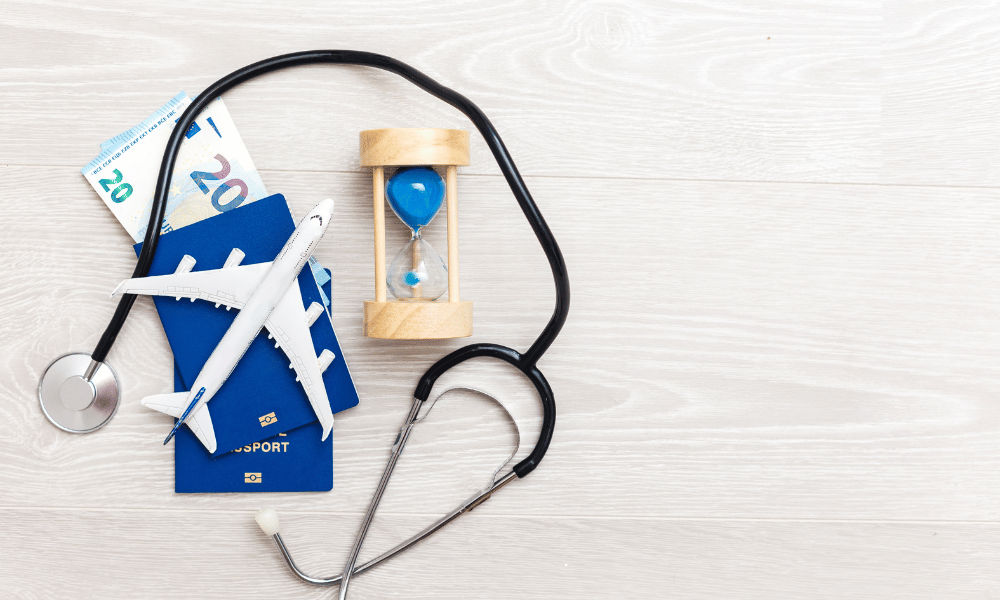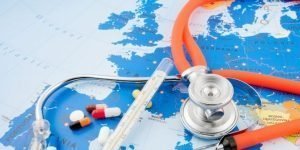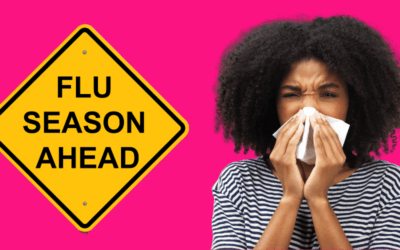Becoming a Travel Health Specialist Pharmacist can be an incredibly rewarding career. Travel Health is an emerging and rapidly developing field of medicine. As we have seen evident from Covid-19, new diseases can arise and outbreaks can occur which can change the face of travel. With travel now firmly back on the radar and more people looking to go abroad, the topic of vaccinations and diseases have never been more at the forefront of current health advice. This highlights the importance of travellers seeking appropriate pre travel advice,ensuring they have adequate preparation and protection against diseases and risks prior to travelling abroad.
Who can be a Travel Health Specialist?
Practitioners working in the field of Travel Health can come from a wide range of professions, including doctors, nurses and pharmacists. Becoming a Travel Health Specialist involves utilising the many clinical skills, knowledge and professional judgement of a practitioner.

What does a Travel Health Specialist do?

A travel health risk assessment is a complex consultation that involves identifying individuals risks for their trip. This can include amongst others; the type of travel, accommodation, trip itinerary and location. The type of activities whilst away, season of travel, climate and environment. It should also take into account access to healthcare and other journey risks.
As a travel health practitioner, you will also need to take into consideration the travellers medical history. This includes known allergies and current medications when considering recommendations or contraindications to vaccinations or medications. You will need to give specific information on the prevention of diseases, both vaccine and non-vaccine preventable, discussing accidents/injury risk to the traveller. All of this aims to reduce the risk of these happening whilst a traveller is away.
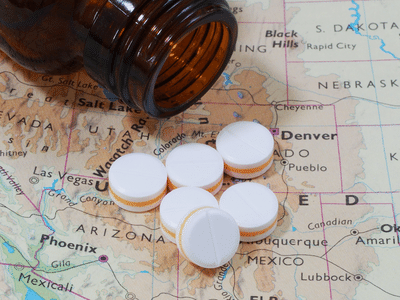
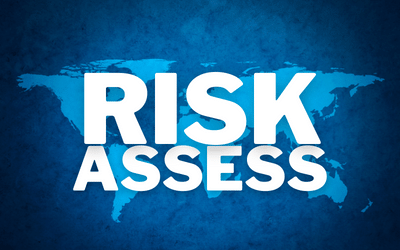
You will need to be able to summarise all of this information into succinct points to enable the traveller to make accurate and informed decisions about their health. All of this is even before you have gone to actually administer the vaccination and dispense suitable medicines safely.
As you can see, all of this requires a unique set of skills. As as a pharmacist, you will have many of these specialist skills already. Utilising them will help you become a competent Travel Health Specialist.
What training do I need to become a travel health specialist pharmacist?

The Royal College of Physicians and Surgeons of Glasgow (RCPSG) states that the level of practice and expertise should always be the same across all professions. It is therefore important that all professionals practicing in Travel Health receive the right training. By doing so, this ensures that you are competent to practice safely and that you are providing the correct and comprehensive advice in order to meet the health and safety needs of the traveller.
RCPSG has published recommendations for professionals working in this field as guidance for what standards of care each practitioner should adhere to when practicing travel medicine. For full details please see the RCPSG Good Practice Guidance for Providing a Travel Health Service [1].
The Faculty of Travel Medicine (FTM) state that “The standards of medical care given to travellers before, during and after travel should be as high as those practised in every other field of medicine”. They also state that “Formal training by an accredited provider should be mandatory for all health professionals offering medical advice to travellers” [1].
According to RCPSG, all healthcare professionals who provide travel health services must:
- Have completed immunisation training in accordance with the: National Minimum Standards and Core Curriculum for Immunisation Training for Registered Healthcare Practitioners [2]
- Provide evidence of formal training on travel health if new to the field
- Provide ongoing evidence of competency in travel health
- Show proof of yearly anaphylaxis and basic life support training
- Provide proof that clinical professionals have received safeguarding level 3 training if they are seeing child travellers. Level 2 training is sufficient for all other travellers
- Provide proof of training on aspects of female genital mutilation (FGM) relevant to travel health
- If administering Yellow fever vaccinations, the practitioners must demonstrate how they meet the standard required for yellow fever vaccine administration [3]
- Any practitioner who provides or administers prescription-only medications (POMs) under a PGD must adhere to: NICE Competency framework: For health professionals using Patient Group Directions [4]
What specific Travel Health Training do you require?
RCPSH advises that all practitioners who practice travel medicine should complete an introductory training programme covering theoretical knowledge that should last a minimum of 2 days. Topics of the course should include, amongst others:
- An overview of Travel Medicine
- How services are organised including NHS/private provisions
- Standards for practice
- What a consultation should aim to achieve
- Travel Medicine Resources available and how to use them
- The importance of risk assessment in a pre-travel consultation and how a consultation should be structured
- Tools to support practice
- Risk of vaccine and non-vaccine preventable diseases abroad
- Challenges that you could experience in practice [1]
For a full list of topics that should be included please refer to the RCPSG Good Practice Guidance for Providing a Travel Health Service [1].
Competency Assessment

The Good Practice Guidance for Providing a Travel Health Service state that in order for practitioners who are new to travel health to practice, theoretical training should be combined with supervised practice to build clinical skills in travel medicine. The length of time required will vary due to individuals requirements and previous skillset [1].
The FTM has created a tool designed to help practitioners move towards unsupervised practice. This Competency Assessment Tool can also be used to pinpoint areas for continuing education, practice and professional growth [1].
Pharmacists have the option of working under Patient Group Directions (PGD’s) to deliver vaccines and pharmacy items. Or they can undertake further training to work as Independent Prescribers. It is important to understand what is required to deliver a high quality service as a Travel Health Specialist Pharmacist. The Good Practice Guidance for Providing a Travel Health service outlines further information on this.
What are the standards in relation to Travel Health Specialist Pharmacists?
The General Pharmaceutical Council (GPhC) are responsible for the regulation and inspection of pharmacists and pharmacies that provide travel health services. The GPhC practice standards highlight the importance and focus of competency and assessment for practice for the individual pharmacist. This includes criteria for the development of professional knowledge and skills [1].

According to the GPhC standards [5], as a pharmacy professional, you provide safe and effective care when you stay current and use evidence in your decision-making. It is important to recognise and work within the boundaries of your knowledge and skills, using this to provide care and raise the standards. The GPhC emphasises the need to reflect frequently on your practice, knowledge and skills. Whilst using your judgement when making clinical and professional decisions [2].
GPhC states that “A pharmacy professional’s knowledge and skills must develop over the course of their career to reflect the changing nature of healthcare, the population they provide care to and the roles they carry out” [5].
Courses through Health Academy to become a Travel Health Specialist
At Health Academy we offer various courses that can help you become a Travel Health Specialist Pharmacist. Our 2 day Introduction to Travel Health course covers all of the essential aspects for health professionals who want to provide a travel health service. To remain up to date, we have a 1 day Travel Health Update course, which we recommend completing on an annual basis to ensure your practice remains current. All of our courses are created in line with the Royal College of Nursing’s (RCN) Travel Health Competencies [6] and the FTM RCPSG Travel Health Good Practice Guidelines [1].
Some of our available travel health courses…
Other courses offered through Health Academy

Pharmacists wishing to specialise in travel health should ensure they undertake a comprehensive immunisation course as per national guidelines. Our immunisation courses are suitable for any registered healthcare professionals who are new to immunising or requiring an update. It is also important to have supervised practice in addition to this to ensure you have been assessed as competent before you are able to vaccinate alone.
RCPSH also state that practitioners should have up to date training on basic life support training including anaphylaxis. For further information on the courses we can offer to support you please click here.
In Summary
- All healthcare professionals that are involved in delivery of a travel health service should be trained to the appropriate standard
- It is critical for all professional groups to stay current on all elements of their scope of practice
- Training is of the most importance in particular to be trained by those experienced to deliver services
1. RCPSG Good Practice Guidance for Providing A Travel Health Service. Available at: https://rcpsg.ac.uk/travel-medicine/good-practice-guidance-for-providing-a-travel-health-service
2. UKHSA National Minimum Standards and Core Curriculum for Immunisation Training for Registered Healthcare Practitioners. Available at: https://www.gov.uk/government/publications/national-minimum-standards-and-core-curriculum-for-immunisation-training-for-registered-healthcare-practitioners
3. National Travel Health Network and Centre in England, Wales, and Northern Ireland, and Public Health Scotland in Scotland. Available at: https://nathnacyfzone.org.uk/
4. NICE Competency framework: For health professionals using Patient Group Directions. Available at: https://www.nice.org.uk/guidance/mpg2/resources/competency-framework-for-health-professionals-using-patient-group-directions-msword-13672765
5. GPhC Standards for Pharmacy Professionals. Available at: https://www.pharmacyregulation.org/standards/standards-for-pharmacy-professionals
6. Royal College of Nursing’s (RCN) Travel Health Competencies. Available at: https://www.rcn.org.uk/Professional-Development/publications/pdf-006506

